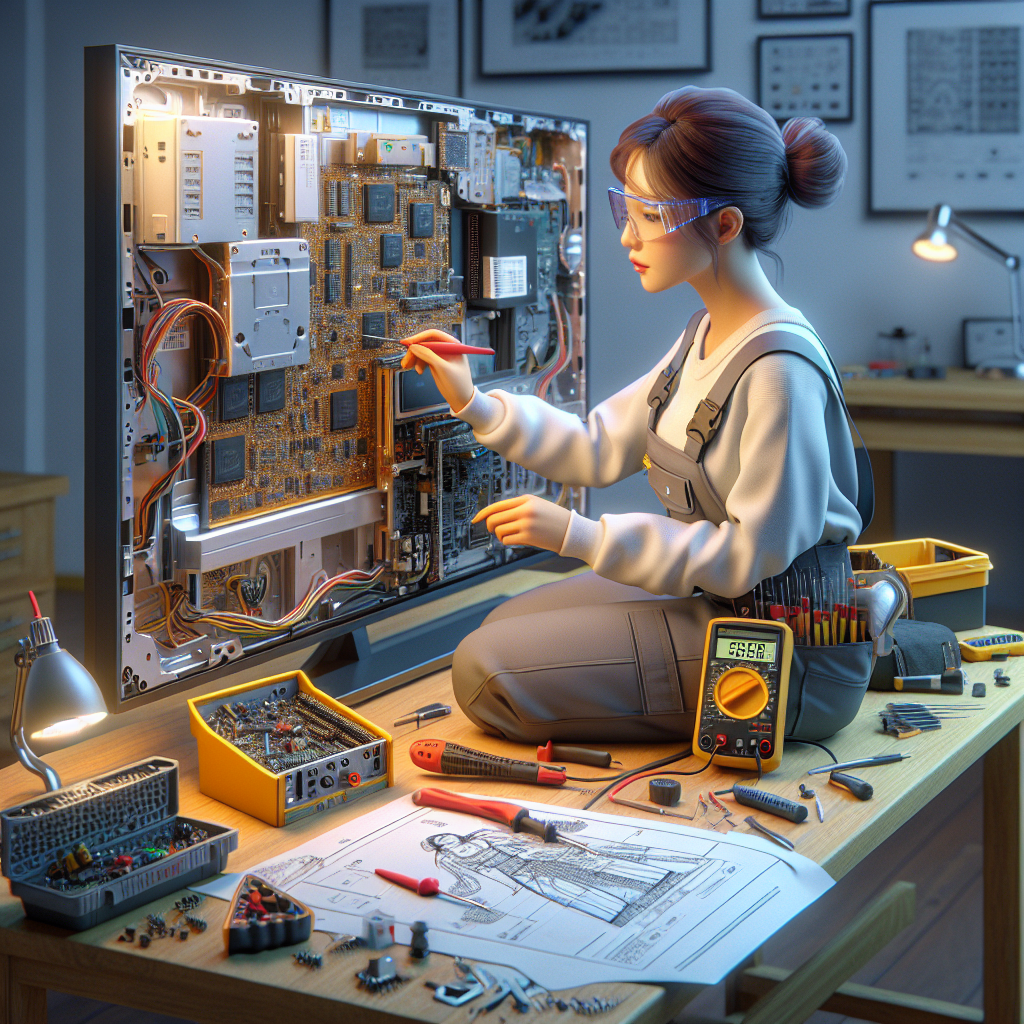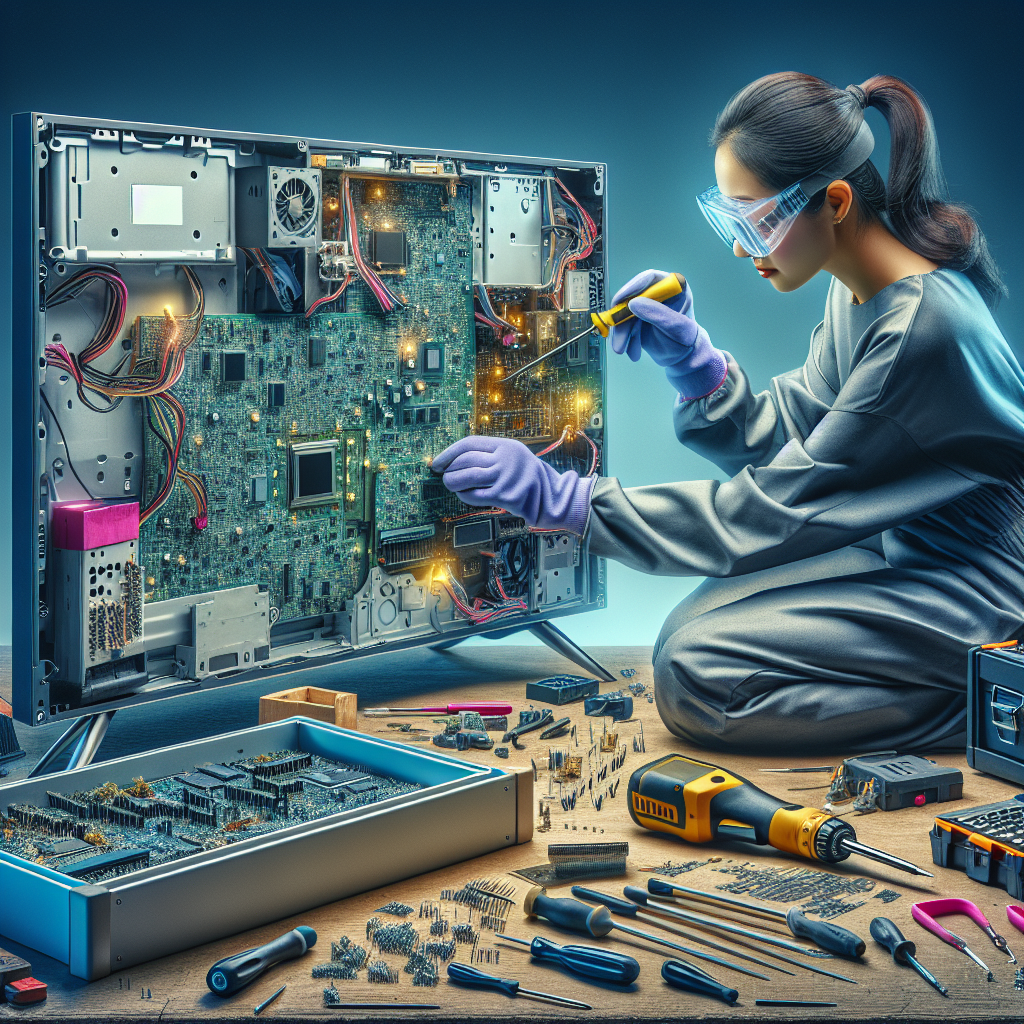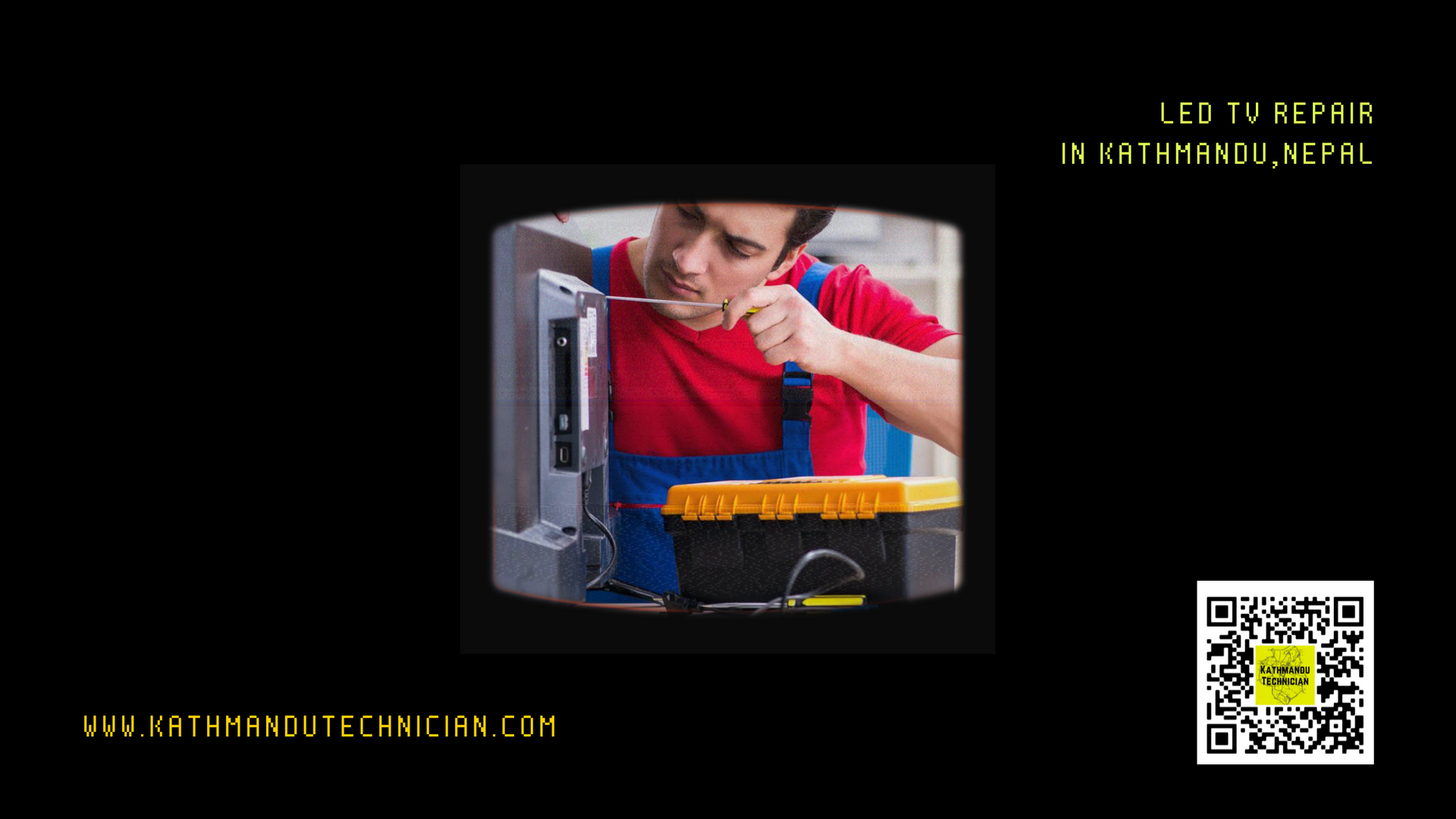Is TV Repairing Worth it ?
Is it Worth Repairing Your TV or Should You Buy a New One?
Introduction
Television has been a constant source of entertainment and information for decades and is an integral part of most homes. It brings families together for a shared experience and props up casual conversations with friends.
Importance of TVs in Modern Homes
In today's fast-paced digital world, television keeps us anchored, providing a steady flow of news, and information and with streaming services, limitless entertainment. TV is also the centerpiece for family gatherings, sports nights, and movie marathons and acts as a critical educational resource for children.
Dilemma of Whether to Repair or Buy a New TV
However, when it dwells on malfunction or unresponsiveness, television owners find themselves in a fix. The dilemma of whether to repair the existing TV or to replace it with a new unit becomes a real challenge.
Purpose of the Blog - Expert advice and Cost Analysis
Through this blog, we aim to alleviate some of your dilemmas with expert advice on TV repair and replacement alongside a detailed cost analysis. We'll explore common repair scenarios, the cost involved in TV repair, and the price tag attached to new units. Stay tuned and find out whether it's worth airing your old TV's dirty laundry or subbing it off for a new player.

Pros and Cons of Repairing Your TV
Understanding both the advantages and drawbacks of repairing your TV is crucial when deciding whether to repair or replace it. Different factors such as cost-effectiveness, familiarity with the device, extendability of its lifespan, success of the repair, warranty, and potential recurrence of issues come into play.
Advantages of Repairing
When you decide to have your TV repaired, there are several advantages that you should consider:
Cost Savings Compared to Buying a New TV
• Primary amongst these is the potential for cost savings. Typically, a repair cost is significantly lower than the cost of a brand-new TV. Especially, if the issue is minor, getting it repaired can save you a nice chunk of change.
Retaining Familiarity with the Existing TV
• Another benefit is the comfort of familiarity. You know your TV's features and how to access your favorite shows. Avoiding a learning curve that comes with new technology can be an attractive advantage for many.
Possibility of Extending the Lifespan of the TV
• Lastly, by repairing, there's the advantage of possibly extending the lifespan of your TV. If your TV is relatively new or of a high-end model, investing in a repair could keep it running smoothly for a few more years.
Disadvantages of Repairing
Despite the benefits, repairing also has its downsides:
Uncertainty of Repair Success
• One significant hurdle is the uncertainty involved in repairs. There’s always the chance that the repair might not be successful, or that it might not resolve all underlying issues.
Limited Warranty on Repaired Parts
• Warranties on repairs can also be a potential issue. Usually, repaired parts may have a limited warranty. Therefore, if those parts fail again after the warranty period, you’ll have to cover the costs.
Potential Recurrence of Issues
• Lastly, there's a potential risk of issues recurring. A repaired TV might sometimes start presenting additional problems due to interconnected malfunctions or wear and tear.
In conclusion, when deciding whether to repair or buy a new TV, it’s important to weigh these pros and cons carefully. Depending on your specific scenario, one choice might be more cost-effective and sensible than the other.
Considerations to Take Into Account When Choosing Between Repair and Replacement
While weighing the options of repairing your TV or buying a new one, several factors come into the equation. Here is a breakdown of the
most significant components that should inform your decision.
Age of the TV
The age of your television matters considerably. If your TV is relatively new with a minor issue, opting for repair should prove a feasible choice. However, a TV over five years old may not be worth the fixing cost due to the rapid technological advancements rendering older models obsolete.
Impact of Technological Advancements
Television technology advances at a rapid pace. Features like superior brightness levels, more vibrant colors, higher resolution, better audio quality, and integrated smart TV capabilities make newer models significantly more appealing. If your TV lacks these features, buying a new one might be a well-deserved upgrade rather than keeping with an outdated model.
Availability of Spare Parts
Check if the spare parts needed for the repair are readily available. Outdated models often have scarce components, and their purchase can be quite expensive.
Cost of Repair
Sometimes repair expenses can surge higher than expected. Before committing to a fix, get a rough estimate of the repair charges. If the cost of fixing the issue makes a notable dent in your wallet, it might be time to consider a new purchase.
Comparing Repair Costs to the Price of a New TV
Compare the repair cost estimate to the price of a new model with similar features. If the repair charges are over half of the cost of a new TV, it would be more economical in the long run to replace rather than repair.
Hidden or Additional Repair Expenses
Remember that there could be undiscovered, underlying issues that may come up during the repair process. These unpredicted expenses could inflate the total repair cost.
Frequency of Repairs
If your TV constantly needs fixing, the combined small repair costs may exceed the price of a new TV. In this case, opting for a new set might be your best bet.
Determining if Constant Repairs are Worth the Hassle
The inconvenience of frequently dealing with technical problems and repair centers is another consideration. Evaluate the hassles and decide whether a new TV might be a more reliable choice.
Identifying Underlying Issues Causing Multiple Repairs
If your TV needs frequent repairs, it's crucial to identify the recurring issue. Multiple repairs for the same problem indicate a significant underlying problem, and replacing the TV might be an optimal solution.
Cost Analysis: Repair Vs Buying a New TV
New Purchase
When considering a new TV purchase, it's important to look at different brands and models and compare their features, quality, and prices. Take note of their respective energy consumption, warranties, and customer reviews. Keep in mind that prices can range from a few hundred dollars for basic models to a couple of thousand dollars for high-end, feature-rich TV sets.
Calculating the Cost of Repair
If your existing TV is broken, it would be a smart move to get a rough estimate of the repair costs. This can be done by identifying the specific problem and researching the average repair cost for that particular issue.
Obtaining Repair Quotes from Professionals
For accurate repair costs, obtain quotes from professional TV repair services. You can find these by searching online for "TV repair near me" or specifically, "TV repair in Nepal," if you happen to live in that region.
Including Additional Expenses Such as Transportation
One often overlooked cost is transportation. If the TV is too large to be conveniently transported by you, you might need to pay for a pick-up and drop-off service. Hence, remember to factor these into your overall repair cost.
Evaluating the Repair Expenses in Comparison to the Cost of a New Television
Once you have the repair quote, compare it with the cost of a new TV. As a rule of thumb, if the repair cost is more than half the price of a new TV, buying a new one might be the more economical choice.
Researching the Cost of Similar Replacement TVs
Consider researching the cost of a similar replacement TV. If the price is comparable or just slightly more than the repair cost, it may make sense to simply buy a new TV.
Factoring in Features, Quality, and Brand Reputation
In your cost analysis, remember to factor in the features, quality, and reputation of the TV brand. A better-quality TV could ultimately save you money in the long run, as it could have a longer lifespan and require fewer repairs.

Other Factors to Consider Before Making a Decision
Before you make a critical decision between repairing your TV or buying a new one, several other factors come into play.
TV usage and personal preferences
Firstly, the amount of TV usage and personal preferences will significantly influence your decision. If you use TV for several hours daily, then investing in a new, energy-efficient model could save you money in the long run. On the other hand, if your TV usage is minimal, investing big bucks in a high-end model might not be necessary, and a simple repair may suffice.
Evaluating viewing habits
Next, consider your viewing habits. Do you generally watch OTA programming, stream over high-speed internet, or rely on a specific set-top box? If your habits lean more towards OTA or set-top boxes, you may not need to invest in a smart TV, thus making a repair the better choice.
Considering the desire for newer features or technologies
Modern-day televisions bring an array of added features and technologies like 4K display, smart capabilities, and HDMI 2.1 ports to name a few. If these features appeal to you, buying a new TV may be a better route.
Expert recommendations
Don't forget to consider the expertise of professionals. Television repair experts could provide a realistic estimate that compares the cost of repair vs buying new.
Seeking advice from professionals
Visit a few 'TV repair near me' or 'TV repair in Nepal' shops to speak with experienced professionals. They can help identify the extent of the damage and project the life expectancy of your TV post-repair.
Considering their unbiased opinion
Although each professional may have a bias towards their line of work, ensure the advice you receive is unbiased. The best advice will always be directed towards the approach that is most beneficial to you as a customer. Remember, a genuine professional will always respect your preference and advice accordingly.
Conclusion
Summarize the Pros and Cons of Repairing vs. Buying a New TV
In conclusion, both TV repair and the purchase of a new TV come with their distinct advantages and disadvantages. Repairing your TV is not only cost-effective but also eco-friendly. It allows you to retain the device you are familiar with and comfortable using. However, it comes with the risk of repeated failures.
On the other hand, buying a new TV offers advanced technology and features that your old TV may not have. It's a long-term investment with a manufacturer's warranty that serves as a fallback. But it could be more expensive, and there’s also the learning curve associated with operating the new device.
Emphasize the Importance of Considering Personal Circumstances and Cost Analysis
Your final decision should consider your personal circumstances, including budget, TV age, and the extent of the damage. An in-depth cost analysis will also be beneficial to determine the cost-effectiveness of repair versus buying a new TV.
Encourage Readers to Make a Decision Based on Their Individual Needs and Preferences
Ultimately, whether to repair or replace your TV comes down to your individual needs and preferences. The variables that affect this decision are many, but taking a moment to examine your needs, do a thorough cost analysis, and reflect on what makes the most sense for your circumstances will guide you to the right decision.


